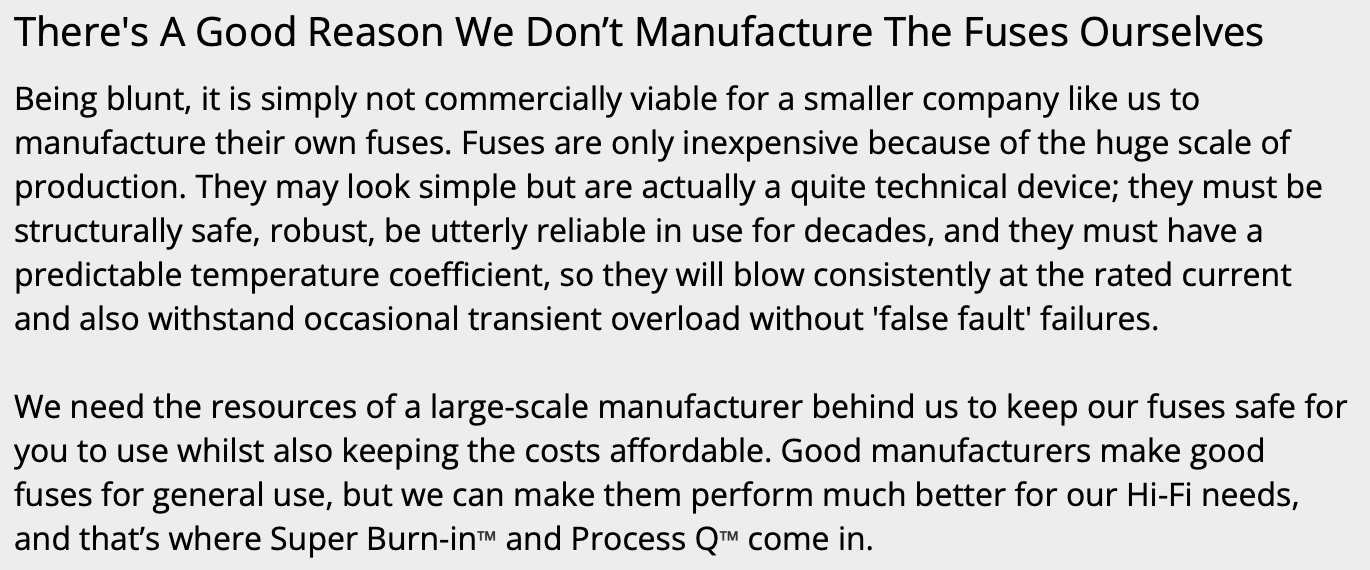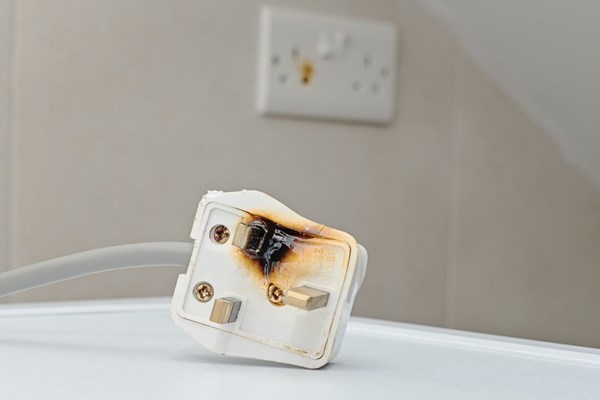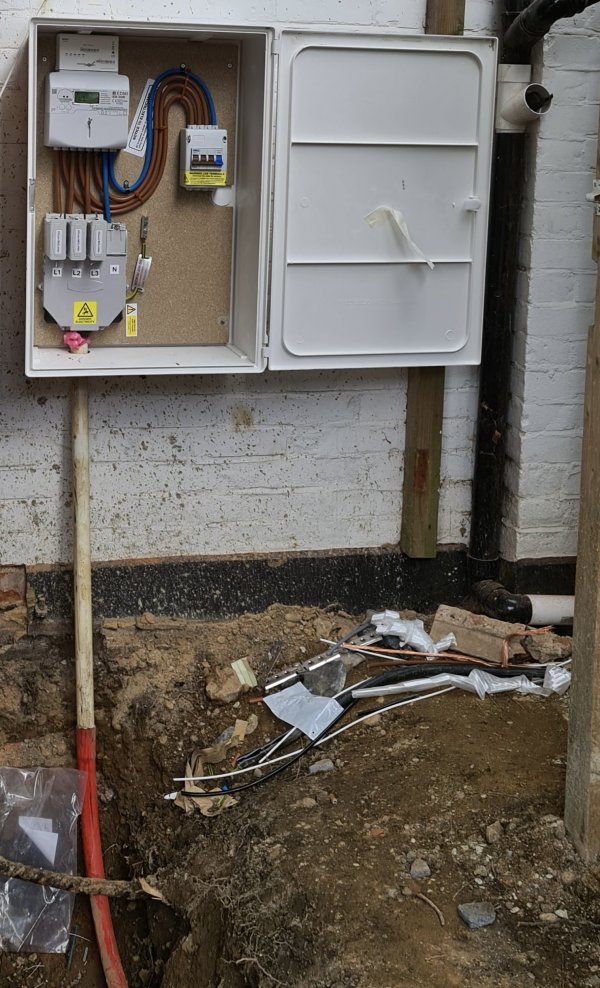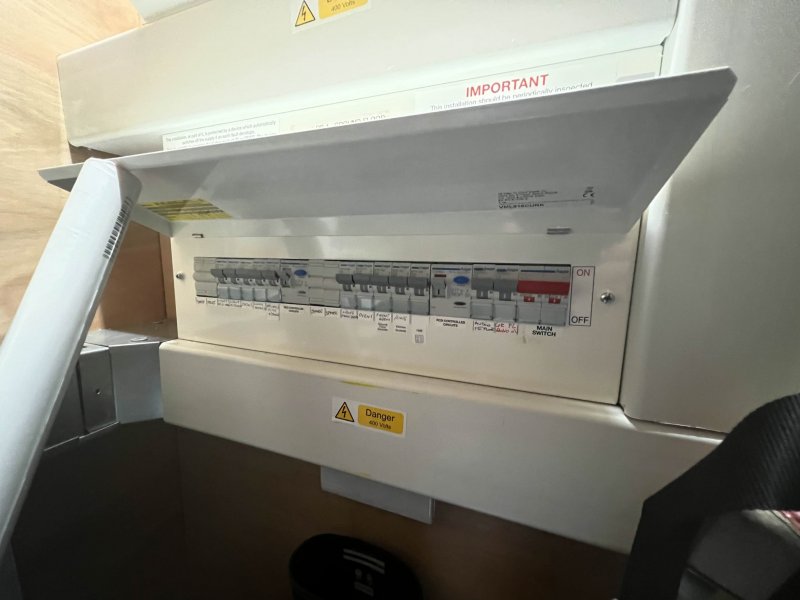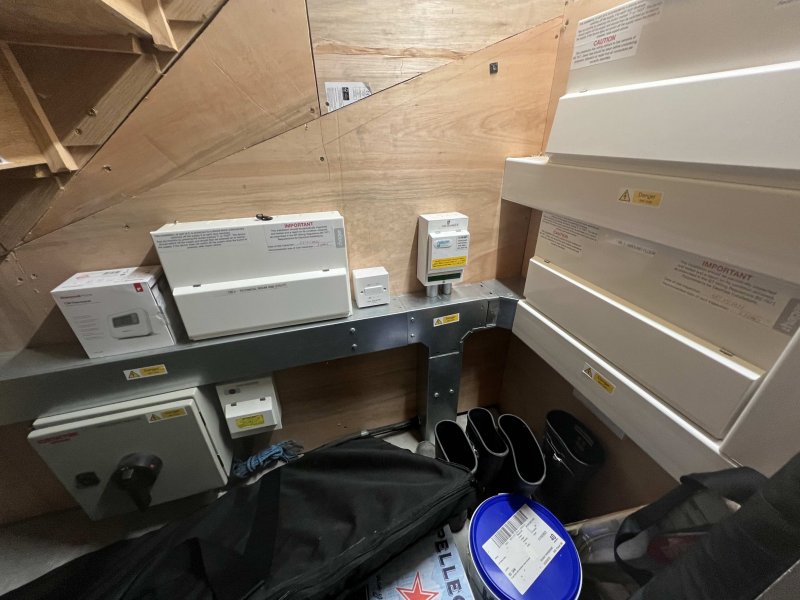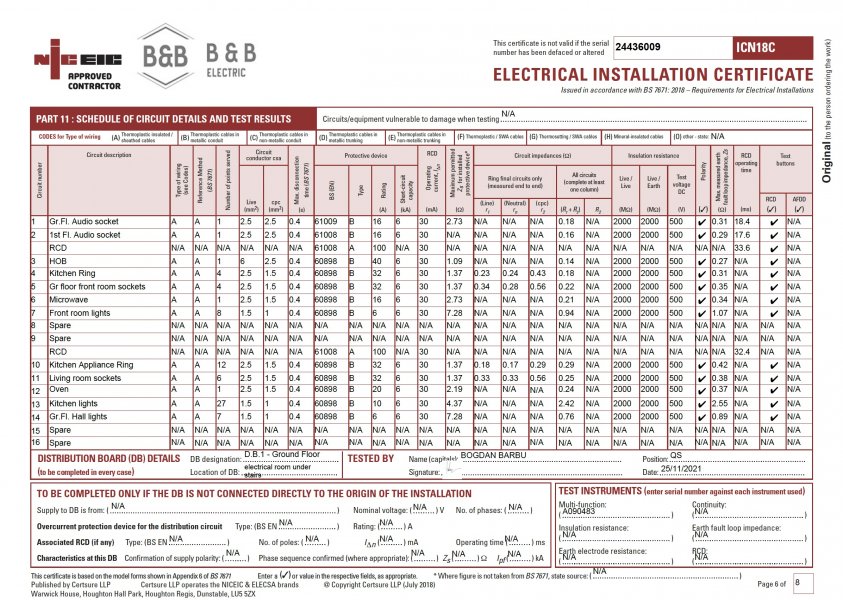European power is basically the same as ours. If I drew a one line of power from the utility pole to the house, its the same flow of disconnect, meter, grounding and bonding, feeder, safety devices, branch wire, duplex etc. Just a little different.
The single 230 volt on the hot is a lot higher voltage. But 120 has a tendency to make you clamp on and stop your heart. 230 volt is more able to blow you off the wire and burn you. But you might live. Or so the horror classes go. I tend to agree. Been bit by both. High voltage seems to throw you off. 120 is sort of grabby.
I have not heard anyone saying QSA, Synergistic Research, Hifi Supreme or any other audio grade fuses are failing to open when a fault occurs. You might not like the price or the marketing, but I have yet to hear of performance issues. If anything, they blow on inrush and cost you money to replace them.
I have heard all sorts of stories of shoddy cables falling apart and failing in the field from big name companies with big prices. I would be more concerned about the terminations on the ends of a cable than the fuse in it.
I would be interested to know if any brand name audio cables have a listing stamp on them in Europe. They may have a fuse in them. But I bet they don't meet other standards and therfore don't have certification. I cant find any listing, label or NRTL on any of my audio equipment. My friends can't find any on their gear either. I don't think you can fear me into a fuse is a more concerning liability because it lacks a brand name on it when every component in my audio system lacks the same sort of regulatory agency certification.
I bet, if QSA were selling fuses for $50 and got rave reviews you would have one in your power cord, IEC inlet as well as pulled the top off your equipment to find the 2 burried inside. I think it is the steap price that really irks you. Me too in the sense I would like to try lots of stuff from them like the ethernet jitter devices. But the sweet spot is $750. If I spend $200 and hear nothing, I have to listen to people tell me I didn't spend enough.
I did try 4 yellow fuse from QSA. 2 blew on startup. I did not hear the other 2. Owe well.
Sounds like a menu of voltages we should all try before we die (or they kill us). I think 230v is designed to inform you that one bitten, don't do it again.
The electrical certificate states the current rating of every cable attached to every socket or appliance in the property, e.g. lighting is typically 6A cable (AWG is not a thing over here - "A" = American). Most appliances will have a 13A cable to a 13A plug. Some will be 3A, 5A or 10A. It is required by law. I think 13A cable is minimum 1.25mm2.
As I said, every appliance comes with a fused plug. One arrived today, for a satellite box. The plug is sealed. The kite mark states the BS1363 approval and the certification number. The fuse is Bussmann and states the BS1362 approval.
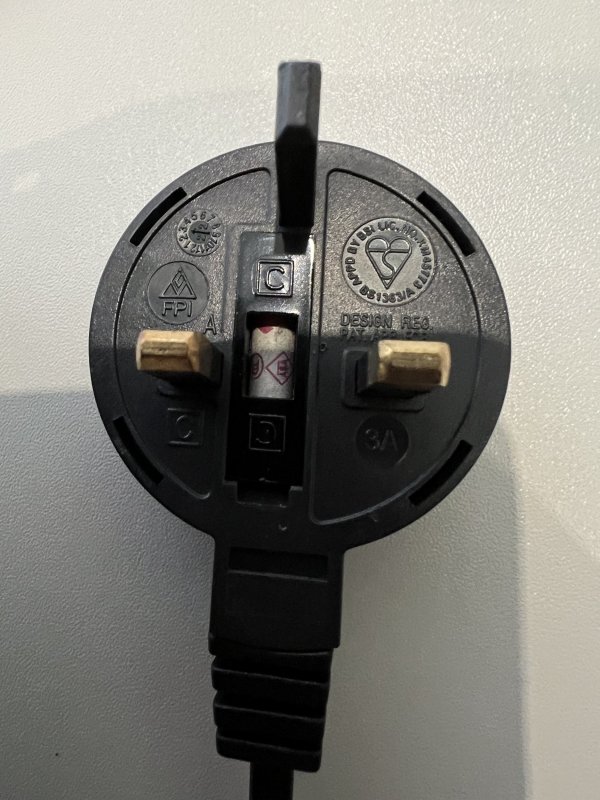
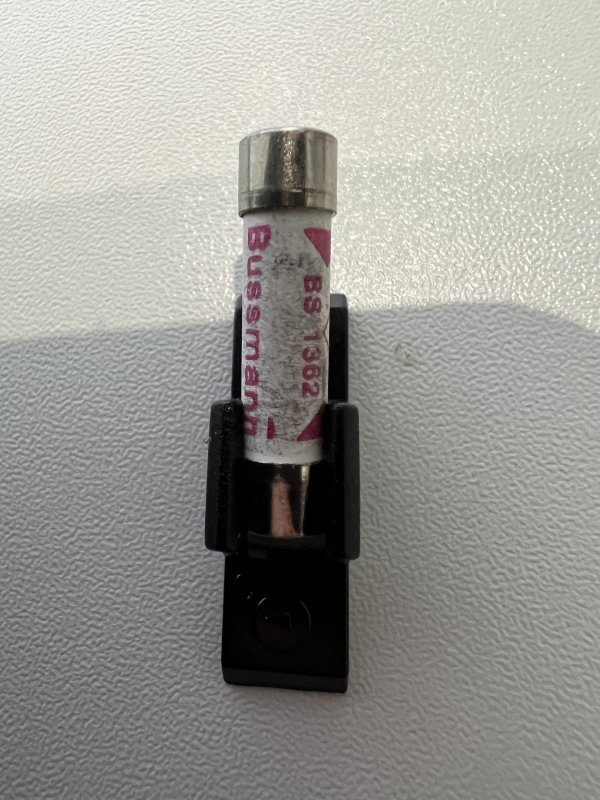
I suspect electricity is much the same throughout the universe. Here, however, I don't have a utility pole to start with. We have different single and 3-phase supplies. My 3-phase is 3 100A lives at 120 degrees and a "neutral" which is a grounded conductor that carries any unbalanced return current in the system.
There are very detailed regulations relating to wiring, contained in BS:7371 (which is a massive set of regulations, running to hundreds of pages). I know little but, for example, it covers things like the insulator, because obviously they cannot be flammable. Cables used to contain cotton - no more. A lot of mains cables are labelled. I don't know the regulations for labelling, but fixed cables have to be certified as to the current rating.
There is nothing stopping you wiring an amplifier with a length of bell cable. Good luck. Or using aftermarket audiophile cables. The regulations apply to the original supply of the appliance.
The point you seem to be missing is that the requirement to label plugs and fuses goes beyond regulations, it's covered by nationally applicable legislation. Breach regulations and you can lose your electrical certificate, breach the law and you can find yourself in court. There is overlap as the regulations are enshrined in law.
The manufacturers making these products in vast quantities know the rules and comply with them. They most likely get checked at various points. There is nothing to fear. For this reason I would not buy direct from China, only from a UK distributor, who has legal responsibility when importing the product. Having been engaged in product liability disputes up to the Supreme Court, I know a little about this.
I have an audiophile cable at hand. Made by Isotek. Here it is:
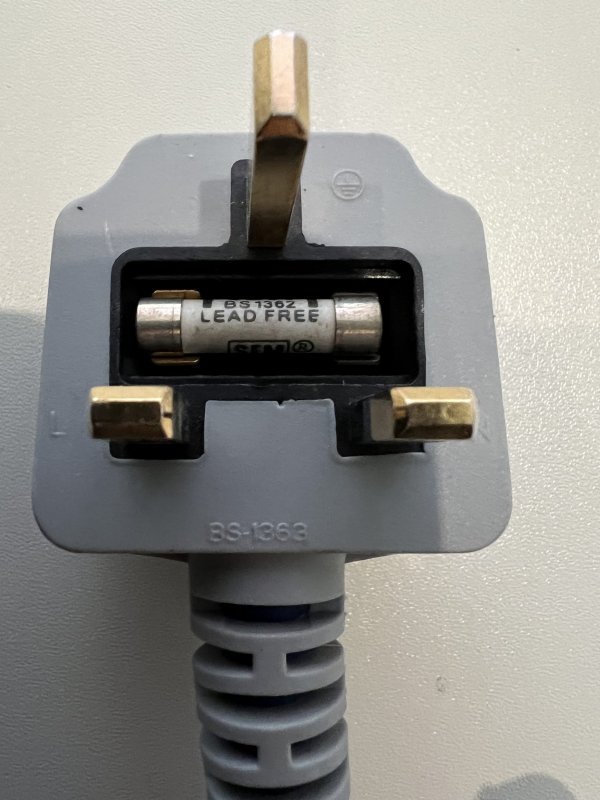
As you can see, it also has a sealed plug that states BS1363 certification and a SEM 10A fuse with BS1362 certification.
I have no idea about product certification. My family used to make electrical appliances and when I was a kid I packed boxes with appliances that had wires coming out with bare connections, leaving the customer to attach a plug. In those days there were still different sockets, so it made sense. For the last 40 years or so a standard fused plug is required to be attached BY LAW.
I am not driven by the cost.
- Russ Andrews sell 13A safety fuses for $30, but I have never been tempted.
- I have tried a $100 SR 2A non-safety fuse. I was unimpressed.
- The UK dealer for QSA is 10 minutes away. They offer fuses on sale or return if not impressed. Never been tempted.
I looked into fuse technology, fuse marketing and fuse regulations because I was interested in the merits as a possible upgrade.
p.s. My terminology:
A safety fuse is one required by law to protect the plug and cable.
A non-safety fuse is one built in by the manufacturer to protect the appliance.


